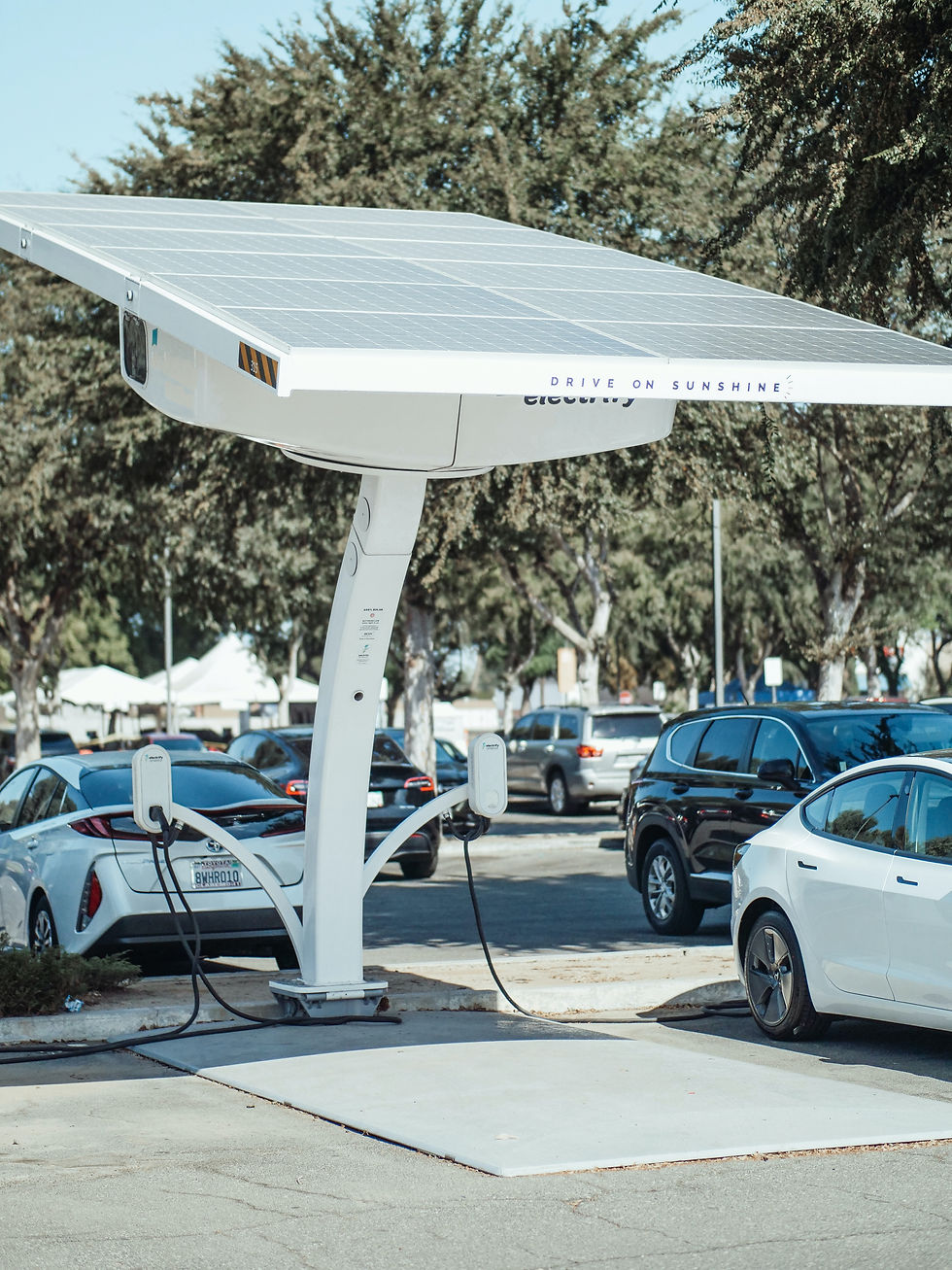2 min read
The Future of Electric Vehicles: From Rags to Riches
- Punish Rathore

- Jul 22, 2022
- 3 min read
Updated: Aug 9, 2022
The popularity of electric vehicles (EVs) has increased rapidly over the past several years, and it doesn’t seem to be slowing down anytime soon. Many experts believe that the future of EVs will be widespread, with electricity becoming the world’s top source of transportation fuel by 2050. Here are the reasons why EVs are expected to become so popular shortly and beyond.

What are electric vehicles?
Electric vehicles are powered by electricity from batteries, fuel cells, or solar panels. They are becoming increasingly popular due to advances in vehicle technology and the ever-growing concern for the environment. The future of electric vehicles looks bright, as they offer many advantages over traditional gasoline-powered cars. Electric vehicles are more efficient, emit no pollutants, and are much quieter than their gas-powered counterparts. With the continued rise in electric vehicle ownership, the future looks bright for this clean and environmentally-friendly mode of transportation.
How did we get here?
In the past decade, vehicle technology has progressed by leaps and bounds. We've seen a shift from gas-guzzling SUVs to smaller, more fuel-efficient cars. Electric vehicles (EVs) are the next logical step in this progression. EVs are powered by electricity instead of gasoline, emitting far less pollution than gas-powered cars.

Why do we care about EVs?
We care about electric vehicles (EVs) because they're the future of vehicle technology. By 2050, it's estimated that EVs will make up for over half of new car sales worldwide. That means that there's a lot of money to be made in the EV industry, and a lot of jobs will be created as a result. Plus, EVs are better for the environment than gas-powered cars, so we can help save the planet while we're making money.
Who will be the winners of this race?
The future of electric vehicles is still very much up in the air. There are a lot of different factors that will play into who comes out on top in this race. The biggest factor will be which company can create the best battery technology. Other important factors will be range, price, and charging infrastructure. Right now, it's anybody's game.
What can I buy today?
In the future, all vehicles will be electric. Today, there are a few electric vehicles (EVs) on the market, but they are very expensive. The Tesla Model S is the most popular EV, but it costs over $100,000. The Nissan Leaf is a more affordable option at around $30,000, but it has a shorter range than the Tesla. There are also a few luxury EVs on the market, like the BMW i3 and the Mercedes-Benz B-Class Electric Drive. But as battery technology improves and production costs decrease, EVs will become more and more affordable for the average consumer. Some experts predict that by 2025, EVs will be cheaper than gas cars.

Startups to Watch (Series A companies)
The future of electric vehicles is looking bright, with many startups innovating in the space. Here are three companies to watch in the space: 1. Rivian, which is developing an all-electric pickup truck; 2. Lordstown Motors, which is working on an electric commercial truck; and 3. Canoo, which is making a modular, subscription-based EV. All three companies have raised significant funding from investors and are well-positioned to make a big impact in the EV market.
EV Industry Trends (regional regulations, changing incentives, etc.)
There's no doubt that the electric vehicle industry is on the rise. With more and more countries implementing regulations to phase out gas-powered cars, and a growing number of consumers interested in eco-friendly options, it's clear that EVs are here to stay. But what does the future hold for these vehicles? Here are some EV industry trends to watch out for in the coming years.
Financial Factors (installation cost, running cost, etc.)
The cost of electric vehicles (EVs) has been dropping steadily over the past few years. In 2016, the average cost of an EV was about $30,000. As battery technology improves and production costs decrease, that price is expected to continue to drop. In addition, the cost of charging an EV is much cheaper than the cost of fueling a gas car. With gas prices averaging around $2.50 per gallon, driving an EV costs about $0.12 per mile. Compare that with the cost of driving a gas car, which is about $0.29 per mile.
When do we hit mass adoption?
We're still a few years away from the mass adoption of electric vehicles (EVs). The current infrastructure isn't quite there yet, and the cost of EVs is still relatively high compared to gas-powered cars. But the future is looking bright for EVs. As battery technology continues to improve, we'll see longer ranges and faster charging times. And as the infrastructure improves, we'll see more and more charging stations popping up across the country. Eventually, EVs will become the norm, and gas-powered cars will be a thing of the past.



Comments